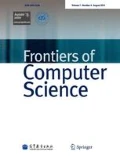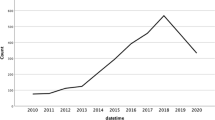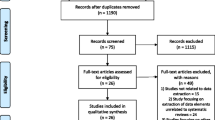Abstract
Users of the internet often wish to follow certain news events, and the interests of these users often overlap. General search engines (GSEs) cannot be used to achieve this task due to incomplete coverage and lack of freshness. Instead, a broker is used to regularly query the built-in search engines (BSEs) of news and social media sites. Each user defines an event profile consisting of a set of query rules called event rules (ERs). To ensure that queries match the semantics of BSEs, ERs are transformed into a disjunctive normal form, and separated into conjunctive clauses (atomic event rules, AERs). It is slow to process all AERs on BSEs, and can violate query submission rate limits. Accordingly, the set of AERs is reduced to eliminate AERs that are duplicates, or logically contained by other AERs. Five types of event are selected for experimental comparison and analysis, including natural disasters, accident disasters, public health events, social security events, and negative events of public servants. Using 12 BSEs, 85 ERs for five types of events are defined by five users. Experimental comparison is conducted on three aspects: event rule reduction ratio, number of collected events, and that of related events. Experimental results in this paper show that event rule reduction effectively enhances the efficiency of crawling.
Similar content being viewed by others
References
Lawrence S, Giles CL. Accessibility of information on the Web. Nature, 1999, 107-09
Selberg E, Etzioni O. The MetaCrawler architecture for resource aggregation on the Web. IEEE Expert, 1997, 12 (1): 11–14
Fellbaun C, Miller G A. Word Net: A lexical database for the English language [EB/OL]. 2006
Li W J, Mu M L, Lu Q, Wei X, Yuan C F. Extractive summarization using inter-and intra-event relevance. In: Proceedings of the 21st International Conference on Computational Linguistics and the 44th Annual Meeting of the ACL. 2006, 369–376
Filatova E, Hatzivassiloglou V. Domain-independent detection, extraction, and labeling of atomic events. In: Proceedings of the 2003 Recent Advances in Natural Language Processing. 2003, 145–152
Zhong Z M, Liu Z T, Li C H, Guan Y. Event ontology reasoning based on event class influence factors. International Journal ofMachine Learning and Cybernetics, 2012, 3 (2): 133–139
Demers A J, Gehrke J, Panda B, Riedewald M, Sharma V, White W. Cayuga: A general purpose event monitoring system. In: Proceeding of Biennial Conference on Innovative Data Systems Research. 2007, 412–422
Li C H, Hu Y, Zhong Z M. An event ontology construction approach to web crime mining. In: Proceedings of the 7th International Conference on Fuzzy Systems and Knowledge Discovery. 2010, 2441–2445
Albakour M D, Macdonald C, Ounis L. Identifying local events by using microblogs as social sensors. In: Proceedings of the 10th International Conference on Open Research Areas in Information Retrieval. 2013, 173–180
Lee S J, Lee S, Kim K, Park J. Bursty event detection from text streams for disaster management. In: Proceedings of the International Conference Companion on World Wide Web. 2012, 679–681
Zhao W X, Chen R H, Fan K, Yan H F, Li X M. A novel burst-based text representation model for scalable event detection. In: Proceedings of the 50th Annual Meeting of the Association for Computational Linguistics. 2012, 43–47
Zhang L M, Jia Y, Zhou B, Zhao J H, Hong F. Online bursty events detection based on emotions. Chinese Journal of Computers, 2013, 1659-667
Chakrabarti S, Den Berg M V, Dom B. Focused crawling: A new approach to topic-specific web resource discovery. Computer Networks, 1999, 1623–6640
Medelyan O, Schulz S, Paetzold J, Poprat M, Markó K. Language specific and topic focused web crawling. In: Proceedings of the Language Resources Conference LREC. 2006, 267–269
Sotiris B, Euripides G M, Petrakis E M. Improving the performance of focused web crawlers. Data & Knowledge Engineering, 2009, 68 (10): 1001–1013
Lee Y H, Na S H, Lee J H. Utilizing local evidence for blog feed search. Information Retrieval, 2012, 15 (2): 157–177
Du Y J, Pen Q Q, Gao Z Q. A topic-specific crawling strategy based on semantics similarity. Data & Knowledge Engineering, 2013, 88: 75–93
Jiang J T, Song X Y, Yu N H, Lin C Y. Focus: Learning to crawl web forums. IEEE Transactions on Knowledge and Data Engineering, 2013, 1293–1306
Liu L, Peng T. Clustering-based topical web crawling using CFu-tree guided by link-context. Frontiers of Computer Science, 2014, 8 (4): 581–595
Metzler D, Cai C X, Hovy E. Structured event retrieval over microblog archives. In: Proceedings of the 2012 Conference of the North American Chapter of the Association for Computational Linguistics: Human Language Technologies. 2012, 646–655
Steven S, Martine D C, Etienne E K. Reasoning about fuzzy temporal information from the web: towards retrieval of historical events. Soft Computing, 2010, 14 (8): 869–886
Zhong Z M, Zhu P, Li C H, Guan Y, Liu Z T. Research on eventoriented query expansion based on local analysis. Journal of the China Society for Scientific and Technical Information, 2012, 31 (2): 151–159
Zhong ZM, Li C H, Liu Z T, Dai HW. Web news oriented event multielements retrieval. Journal of Software, 2013, 2366-378
Wu P B, Chen Q X, Ma L. Study on intelligent retrieval of event relevant documents based on event frame. Journal of Chinese Information Processing, 2003, 17 (6): 25–30
Fu T J, Abbasi A, Chen H C. A focused crawler for dark Web forums. Journal of the American Society for Information Science and Technology, 2010, 61 (6): 1213–1231
Yang L Y, Li H J, Zhang Y K. The research on classification system of accidental news corpus. In: Proceedings of the 25th Conference on Frontier and Progress of Chinese Information Processing. 2006, 403–409
Menczer F, Pant G, Srinivasan P. Topical web crawlers: evaluating adaptive algorithms. ACM Transactions on Internet Technology, 2004, 4 (4): 378–419
Martinez-Romo J, Araujo L. Updating broken Web links: An automatic recommendation system. Information Processing and Management, 2012, 48 (2): 183–203
Melanie N, Markus N, Rudolf M, Bianka T. Focused crawling for building Web comment corpora. In: Proceedings of the 10th IEEE Consumer Communications and Networking Conference. 2013, 685–688
Author information
Authors and Affiliations
Corresponding author
Additional information
Zhaoman Zhong received his PhD in Computer Science from Shanghai University, China in 2011. His research interests are information retrieval and artificial intelligence.
Zongtian Liu received his MS from Beijing University of Aeronautics and Astronautics, China in 1982. His research interests are artificial intelligence and software engineering.
Yun Hu received her PhD in Computer Science from Nanjing University, China in 2013. Her research interests are social network analysis and artificial intelligence.
Cunhua Li received his PhD from Southeast University, China in 2007. His research interests are data mining and knowledge engineering.
Electronic supplementary material
Rights and permissions
About this article
Cite this article
Zhong, Z., Liu, Z., Hu, Y. et al. Efficient multi-event monitoring using built-in search engines. Front. Comput. Sci. 10, 281–291 (2016). https://doi.org/10.1007/s11704-015-4432-3
Received:
Accepted:
Published:
Issue Date:
DOI: https://doi.org/10.1007/s11704-015-4432-3




